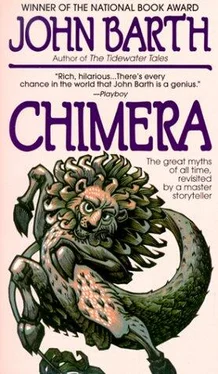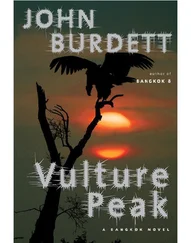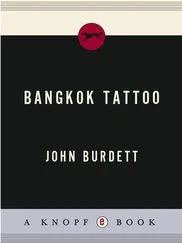John Barth - Chimera
Здесь есть возможность читать онлайн «John Barth - Chimera» весь текст электронной книги совершенно бесплатно (целиком полную версию без сокращений). В некоторых случаях можно слушать аудио, скачать через торрент в формате fb2 и присутствует краткое содержание. ISBN: , Жанр: Юмористическая фантастика, на английском языке. Описание произведения, (предисловие) а так же отзывы посетителей доступны на портале библиотеки ЛибКат.
- Название:Chimera
- Автор:
- Жанр:
- Год:неизвестен
- ISBN:9780449211137
- Рейтинг книги:5 / 5. Голосов: 1
-
Избранное:Добавить в избранное
- Отзывы:
-
Ваша оценка:
- 100
- 1
- 2
- 3
- 4
- 5
Chimera: краткое содержание, описание и аннотация
Предлагаем к чтению аннотацию, описание, краткое содержание или предисловие (зависит от того, что написал сам автор книги «Chimera»). Если вы не нашли необходимую информацию о книге — напишите в комментариях, мы постараемся отыскать её.
Chimera — читать онлайн бесплатно полную книгу (весь текст) целиком
Ниже представлен текст книги, разбитый по страницам. Система сохранения места последней прочитанной страницы, позволяет с удобством читать онлайн бесплатно книгу «Chimera», без необходимости каждый раз заново искать на чём Вы остановились. Поставьте закладку, и сможете в любой момент перейти на страницу, на которой закончили чтение.
Интервал:
Закладка:
"This last, as our frantic research went on, became her motto, even her obsession. As she neared the end of her supply of lore, and Shahryar his supply of virgins, she became more and more certain that her principle was correct, and desperate that in the whole world's stock of stories there was none that confirmed it, or showed us how to use it to solve the problem. 'I've read a thousand tales about treasures that nobody can find the key to,' she told me; 'we have the key and can't find the treasure.' I asked her to explain. 'It's all in here,' she declared — I couldn't tell whether she meant her inkstand or the quill she pointed toward it. I seldom understood her any more; as the crisis grew, she gave up reading for daydreaming, and used her pen less for noting instances of the Magic Key motif in world literature than for doodling the letters of our alphabet at random and idly tickling herself.
" 'Little Doony,' she said dreamily, and kissed me: 'pretend this whole situation is the plot of a story we're reading, and you and I and Daddy and the King are all fictional characters. In this story, Scheherazade finds a way to change the King's mind about women and turn him into a gentle, loving husband. It's not hard to imagine such a story, is it? Now, no matter what way she finds — whether it's a magic spell or a magic story with the answer in it or a magic anything- it comes down to particular words in the story we're reading, right? And those words are made from the letters of our alphabet: a couple-dozen squiggles we can draw with this pen. This is the key, Doony! And the treasure, too, if we can only get our hands on it! It's as if — as if the key to the treasure is the treasure!'
"As soon as she spoke these last words a genie appeared from nowhere right there in our library-stacks. He didn't resemble anything in Sherry's bedtime stories: for one thing, he wasn't frightening, though he was strange-looking enough: a light-skinned fellow of forty or so, smooth-shaven and bald as a roc's egg. His clothes were simple but outlandish; he was tall and healthy and pleasant enough in appearance, except for queer lenses that he wore in a frame over his eyes. He seemed as startled as we were — you should've seen Sherry drop that pen and pull her skirts together! — but he got over his alarm sooner, and looked from one to the other of us and at a stubby little magic wand he held in his fingers, and smiled a friendly smile.
" 'Are you really Scheherazade?' he asked. 'I've never had a dream so clear and lifelike! And you're little Dunyazade- just as I'd imagined both of you! Don't be frightened: I can't tell you what it means to me to see and talk to you like this; even in a dream, it's a dream come true. Can you understand English? I don't have a word of Arabic. O my, I can't believe this is really happening!'
"Sherry and I looked at each other. The Genie didn't seem dangerous; we didn't know those languages he spoke of; every word he said was in our language, and when Sherry asked him whether he'd come from her pen or from her words, he seemed to understand the question, though he didn't know the answer. He was a writer of tales, he said — anyhow a former writer of tales — in a land on the other side of the world. At one time, we gathered, people in his country had been fond of reading; currently, however, the only readers of artful fiction were critics, other writers, and unwilling students who, left to themselves, preferred music and pictures to words. His own pen (that magic wand, in fact a magic quill with a fountain of ink inside) had just about run dry: but whether he had abandoned fiction or fiction him, Sherry and I couldn't make out when we reconstructed this first conversation later that night, for either in our minds or in his a number of crises seemed confused. Like Shahryar's, the Genie's life was in disorder — but so far from harboring therefore a grudge against womankind, he was distractedly in love with a brace of new mistresses, and only recently had been able to choose between them. His career, too, had reached a hiatus which he would have been pleased to call a turning-point if he could have espied any way to turn: he wished neither to repudiate nor to repeat his past performances; he aspired to go beyond them toward a future they were not attuned to and, by some magic, at the same time go back to the original springs of narrative. But how this was to be managed was as unclear to him as the answer to the Shahryar-problem was to us — the more so since he couldn't see how much of his difficulty might be owing to his own limitations, his age and stage and personal vicissitudes; how much to the general decline of letters in his time and place; and how much to the other crises with which his country (and, so he alleged, the very species) was beset- crises as desperate and problematical, he avowed, as ours, and as inimical to the single-mindedness needed to compose great works of art or the serenity to apprehend them.
"So entirely was he caught up in these problems, his work and life all had come to a standstill. He had taken leave of his friends, his family, and his post (he was a doctor of letters), and withdrawn to a lonely retreat in the marshes, which only the most devoted of his mistresses deigned to visit.
" 'My project,' he told us, 'is to learn where to go by discovering where I am by reviewing where I've been — where we've all been. There's a kind of snail in the Maryland marshes — perhaps I invented him — that makes his shell as he goes along out of whatever he comes across, cementing it with his own juices, and at the same time makes his path instinctively toward the best available material for his shell; he carries his history on his back, living in it, adding new and larger spirals to it from the present as he grows. That snail's pace has become my pace — but I'm going in circles, following my own trail! I've quit reading and writing; I've lost track of who I am; my name's just a jumble of letters; so's the whole body of literature: strings of letters and empty spaces, like a code that I've lost the key to.' He pushed those odd lenses up on the bridge of his nose with his thumb — a habit that made me giggle — and grinned. 'Well, almost the whole body. Speaking of keys, I suspect that's how I got here.'
"By way of answer to Sherry's question then, whether he had sprung from her quill-pen or her words, he declared that his researches, like hers, had led him to an impasse; he felt that a treasure-house of new fiction lay vaguely under his hand, if he could find the key to it. Musing idly on this figure, he had added to the morass of notes he felt himself mired in, a sketch for a story about a man who comes somehow to realize that the key to the treasure he's searching for is the treasure. Just exactly how so (and how the story might be told despite all the problems that beset him) he had no chance to consider, for the Instant he set on paper the words The key to the treasure is the treasure , he found himself with us- for how long, or to what end, or by what means, he had no idea, unless it was that of all the storytellers in the world, his very favorite was Scheherazade.
" 'Listen how I chatter on!' he ended happily. 'Do forgive me!'
"My sister, after some thought, ventured the opinion that the astonishing coincidence of her late reveries and his, which had led them as it were simultaneously to the same cryptic formulation, must have something to do with his translation to her library. She looked forward, she said, to experimenting whether a reverse translation could be managed, If the worst came to worst, to spirit me out of harm's way; as for herself, she had no time or use for idle flights of fancy, however curious, from the gynocide that was ravaging her country: remarkable as it was, she saw no more relevance to her problems than to his in this bit of magic.
Читать дальшеИнтервал:
Закладка:
Похожие книги на «Chimera»
Представляем Вашему вниманию похожие книги на «Chimera» списком для выбора. Мы отобрали схожую по названию и смыслу литературу в надежде предоставить читателям больше вариантов отыскать новые, интересные, ещё непрочитанные произведения.
Обсуждение, отзывы о книге «Chimera» и просто собственные мнения читателей. Оставьте ваши комментарии, напишите, что Вы думаете о произведении, его смысле или главных героях. Укажите что конкретно понравилось, а что нет, и почему Вы так считаете.












